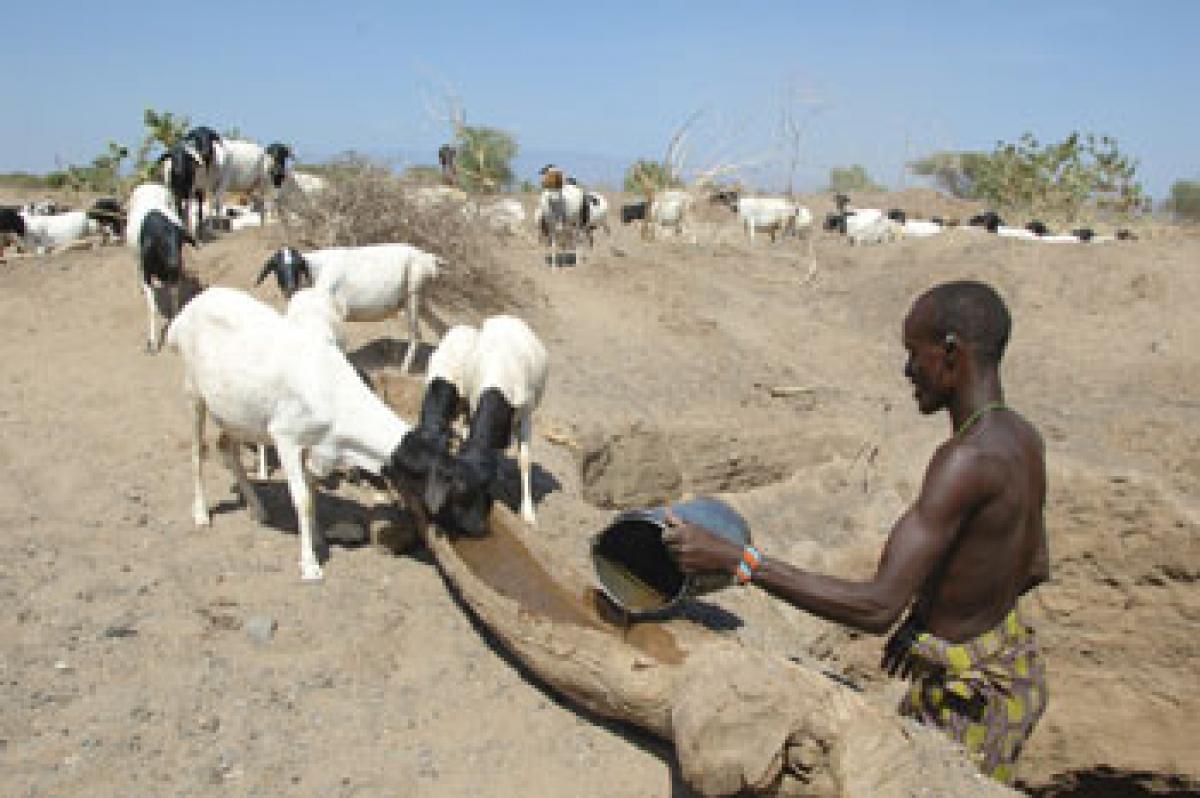Live
- Chanchalguda Jail Officials Say They Haven't Received Bail Papers Yet, Allu Arjun May Stay in Jail Tonight
- BJP leaders present evidence of illegal voters in Delhi, urge EC for swift action
- Exams will not be cancelled: BPSC chairman
- Nagesh Trophy: Karnataka, T.N win in Group A; Bihar, Rajasthan triumph in Group B
- YS Jagan condemns the arrest of Allu Arjun
- Economic and digital corridors to maritime connectivity, India and Italy building vision for future, says Italian Ambassador
- SMAT 2024: Patidar's heroics guide Madhya Pradesh to final after 13 years
- CCPA issues notices to 17 entities for violating direct selling rules
- Mamata expresses satisfaction over speedy conviction in minor girl rape-murder case
- Transparent Survey Process for Indiramma Housing Scheme Directed by District Collector
Just In

The world\'s 48 poorest countries will need to find around a trillion dollars between 2020 and 2030 to achieve their plans to tackle climate change - and those plans should be a priority for international funding, researchers said.
 Estimates based on plans submitted by the least-developed countries (LDCs) toward a new UN deal to curb global warming show they will cost some $93 billion a year from 2020
Estimates based on plans submitted by the least-developed countries (LDCs) toward a new UN deal to curb global warming show they will cost some $93 billion a year from 2020
Paris (Thomson Reuters Foundation): The world's 48 poorest countries will need to find around a trillion dollars between 2020 and 2030 to achieve their plans to tackle climate change - and those plans should be a priority for international funding, researchers said.
Estimates based on plans submitted by the least-developed countries (LDCs) toward a new UN deal to curb global warming show they will cost some $93 billion a year from 2020, when an agreement expected to be ironed out in Paris over the next two weeks is due to take effect.
That includes $53.8 billion annually to reduce emissions and $39.9 billion to deal with more extreme weather and rising seas, according to a report from the London-based International Institute for Environment and Development (IIED).
IIED Director Andrew Norton said the least-developed countries currently get less than a third of all international climate funding provided by wealthy governments. The least-developed countries - from Ethiopia to Zambia, and Yemen and Pacific island nations - are home to some of the poorest communities who are suffering the worst impacts of intensifying droughts, floods, storms and crumbling coastlines. Yet they produce just a tiny fraction of the planet-warming gases that drive climate change.
Such countries have a widespread lack of resources and expertise to tackle climate change. But all 48 have produced so-called Intended Nationally Determined Contributions (INDCs) to a new global climate deal. These plans set out how they will curb their emissions from 2020 - by shifting to renewable power sources, such as solar, or building cleaner public transport, for example.
They also outline what countries need to do to help their people live better with climate change impacts. In some cases, they say how much all this action will cost. The IIED report noted that three countries - Burkina Faso, Djibouti and Zambia — are showing "extraordinary commitment" by aiming to find more finance within their borders than beyond them.
The poor countries will require technology sharing and help to build their capacity, as well as investment capital, particularly for high start-up costs. Much of the money must come from international sources, the report said.
Despite poorer countries' clear need for funding to combat climate change, the lion’s share of government finance goes to wealthier nations, it noted. Brazil, China, India, Morocco, South Africa and Turkey are receiving as much public money as all the least-developed countries together, the report added.
And of the annual $11.8 billion in donor government money flowing to the least-developed countries in 2013 and 2014, the bulk - $10 billion - went to support efforts to curb emissions. Just $1.8 billion was allocated for adapting to climate stresses, according to recent figures from the Organisation for Economic Co-operation and Development.
The Paris talks are due to clarify how rich countries will mobilise a promised $100 billion per year by 2020 to help poorer nations develop cleanly and withstand climate pressures, and set out a longer-term path for climate finance.
There is growing pressure from African and other developing countries for donors to give a larger share of their money for adaptation, which has received less than a fifth of the total. “Making finance available is one thing, but ensuring it gets to those who need it most is another,” said Norton.
By Megan Rowling

© 2024 Hyderabad Media House Limited/The Hans India. All rights reserved. Powered by hocalwire.com







